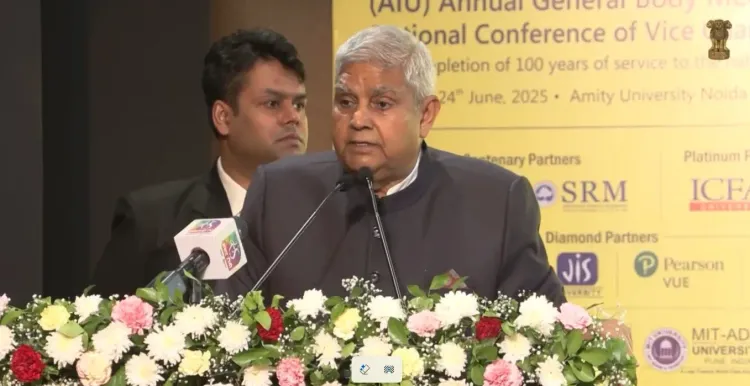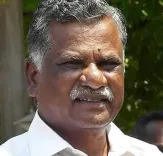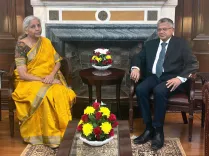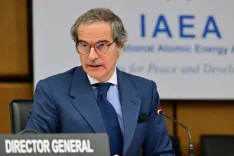Should Universities Be Sanctuaries for Ideas and Ideation?

Synopsis
Key Takeaways
- Universities should evolve into sanctuaries of innovation.
- Degrees must carry weight beyond mere certification.
- Encouraging debate and discussion is essential for academic growth.
- Greenfield institutions are needed in underserved areas.
- Education must be affordable and accessible for all.
New Delhi, June 23 (NationPress) The condition of education reflects not just the realm of academics but also the essence of the nation, stated Vice President Jagdeep Dhankhar on Monday, urging that universities evolve into sanctuaries of ideas and ideation.
While addressing vice-chancellors at a conference hosted by the Association of Indian Universities (AIU), the Vice President remarked, “Reflecting on our ancient heritage, we are reminded of our illustrious past. It is imperative that Bharat develops world-class institutions that not only educate but also lead in innovation.”
He also launched a commemorative Coffee Table Book celebrating a century of AIU’s contributions to higher education.
Furthermore, he emphasized that universities should serve as catalysts for social change. “Our institutions are not simply meant to confer degrees. The value of these degrees should be significant. Universities need to become crucibles of innovation and foster transformative changes,” he asserted.
“This important duty falls particularly on the Vice-Chancellors and the academic community at large. I urge you to create an environment conducive to disagreement, debate, dialogue, and discussion. Abhivyakti, Vaad Vivaad, Anant Vaad are indispensable elements of our civilization and democracy,” he added.
Highlighting the need for innovation, Dhankhar noted, “We cannot perpetually rely on Western innovations while our demographic dividend positions us as a global knowledge hub. These are not just fields of study; they are vital levers for ensuring our sovereignty in future times.”
Addressing the outreach of institutions, the Vice President mentioned, “Numerous institutions remain brownfield. Let us align with global standards and embrace green initiatives. Greenfield institutions are crucial for the equitable distribution of knowledge centers.”
He pointed out that certain regions have not yet reaped the benefits of institutional growth. “A considerable segment of the population is deprived of these advantages due to geographical distance. We should focus on establishing greenfield institutions in underserved areas,” he stated.
Dhankhar further encouraged institutional leaders to advocate for affordable education. “Vice-Chancellors must not only act as overseers but also as formidable barriers against the commodification and commercialization of education. One of our primary goals for national transformation is to ensure quality education is affordable and accessible for all,” he emphasized.
The two-day conference, themed ‘Envisioning Future Higher Education: The Pivotal Role of India’, is attended by 300 vice-chancellors nationwide, with another 200 joining virtually.
The conference aims to unveil an action plan for transforming higher education and to draft a policy note on the ‘Future of Higher Education’.








